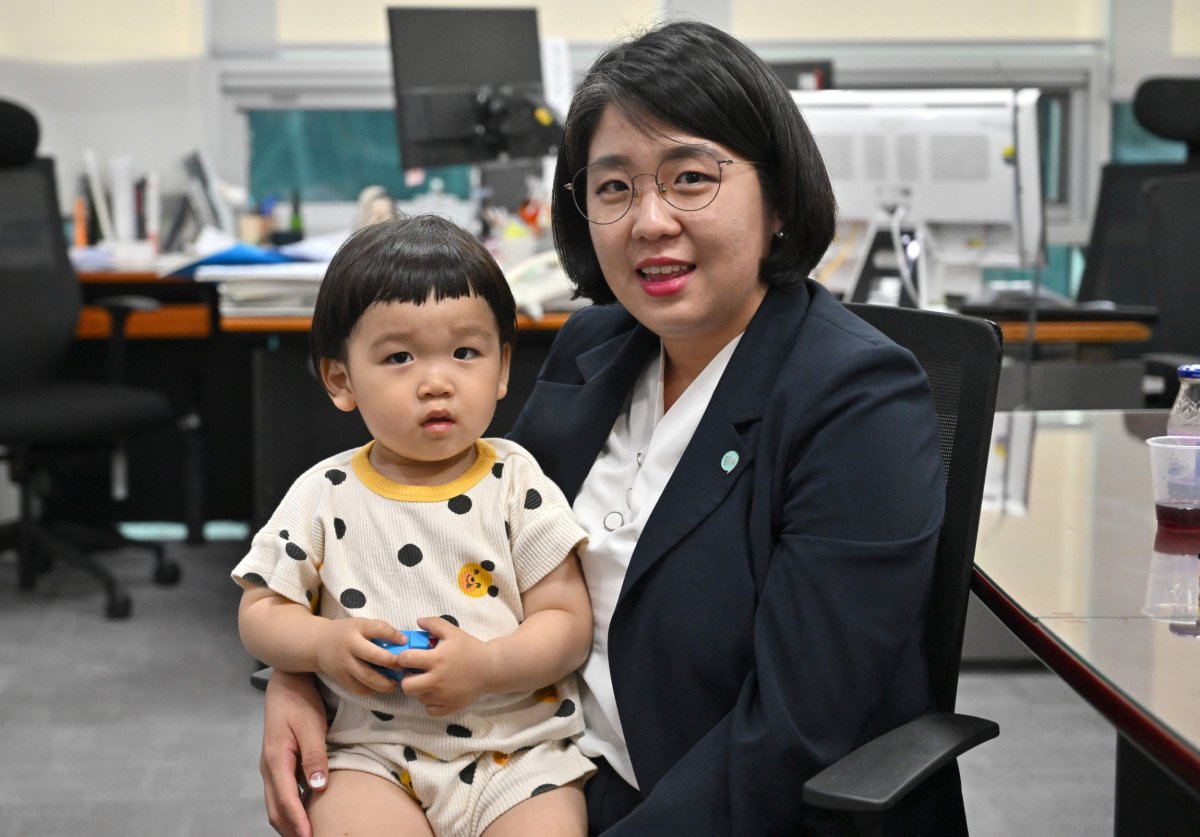A South Korean company is offering its employees a cool $75,000 each time they have a baby.
"If Korea's birth rate remains low, the country will face extinction," Lee Joong-keun, chairman of construction giant Booyoung Group, told workers early last month, according to reports.
The country's fertility rate, already the lowest in the world, fell even further last year, with the average number of expected babies per South Korean woman now down to 0.72 from 0.78 last year—far below the replacement rate of 2.1.
The trend is driven by societal changes such as shifting attitudes towards marriage and family life, economic pressures, fear of missing job opportunities, and a trend toward solitary living.
President Yoon Suk Yeol said in 2022, that the government had allocated a whopping $200 billion over 16 years for initiatives to support new mothers. And starting this year, a stipend for households with babies has been bumped up to $750.
Companies like Booyoung are making their own contributions to the nationwide effort.
"I hope we would get recognized as a company that contributes to encouraging births... and worries about the country's future," Lee told his employees, according to a CNN report.
A Booyoung spokesperson told CNN the perk is available to both women and men.
"The issue of low birthrates requires us to take the situation more seriously and contemplate on the causes and solutions from a different dimension than before," President Yoon said in December, per South Korea's Yonhap News Agency.
"Time is running short. I hope that every government agency approaches the issue of low birthrates with extraordinary determination," he said.
The South Korean embassy in the U.S. did not immediately respond to a written request for comment.
The dearth of babies is accelerating South Korea's demographic woes.
The nation of 51 million saw its population decline for the fourth consecutive year in 2023. Meanwhile, the proportion of young to old has rapidly dwindled in recent decades.
In 1990, young adults aged 19 to 34 comprised almost a third of the population. By 2020, this demographic had shrunk to 10.21 million, or just one-fifth. The country's statistics bureau forecasts this figure will further drop to 5.21 million by 2050.
By contrast, South Koreans aged 65 and above constituted 17.5 percent of the population in 2022. This trend indicates that the elderly will outnumber young adults by the decade's end.
The decline in the youthful working-age population also raises concerns about the long-term competitiveness of Asia's fourth-largest economy.
South Korea's East Asian neighbors are not far behind, however, in terms of flatlining fertility rates, with China, Japan, and Taiwan also grappling with looming population crises.

Uncommon Knowledge
Newsweek is committed to challenging conventional wisdom and finding connections in the search for common ground.
Newsweek is committed to challenging conventional wisdom and finding connections in the search for common ground.
About the writer
Micah McCartney is a reporter for Newsweek based in Taipei, Taiwan. He covers U.S.-China relations, East Asian and Southeast Asian ... Read more
To read how Newsweek uses AI as a newsroom tool, Click here.






